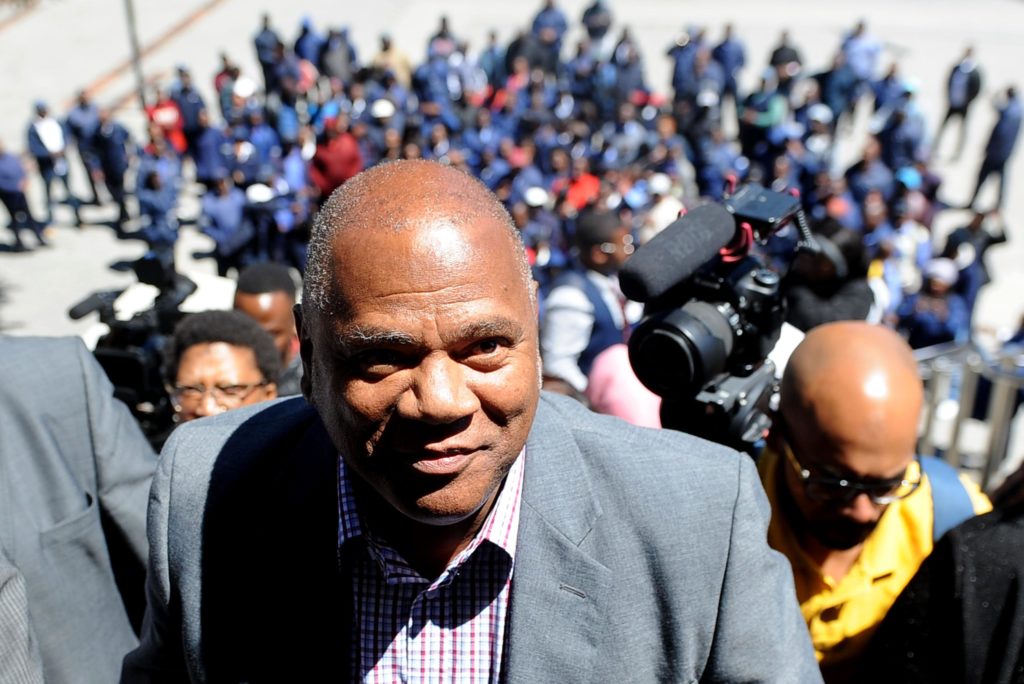Cape Town’s Executive Mayor Dan Plato has said he believes that Bulelani Qholani, the man who was dragged naked out of his shack during evictions in Khayelitsha, may have deliberately done this to make the City look bad. Plato said this during an interview with eNCA on Thursday [July 2].
People across the country raised a furore after the footage emerged showing Qholani being dragged naked from his shack as he was washing. The incident took place on Wednesday, July 1 and has been the subject of much talk.
“I think it was to some extent deliberately done to put the city of Cape Town in a very bad light,” Plato told eNCA.
[ON AIR] The man who was thrown out of his home while naked in Khayelitsha is calling on President Cyril Ramaphosa to intervene. Cape Town Mayor, Dan Plato gives us his reaction to this story. #DStv403 pic.twitter.com/VNBMZIaTWI
— eNCA (@eNCA) July 2, 2020
According to the Mayor, it is common for people to stand naked in front of their shacks in an attempt to prevent them from being demolished.
“It is not the first incident and it is not the last incident,” Plato said.
The Mayor also added that there are reports that Qholani was clothed just moments before officers moved into his shack. The City reportedly has video evidence that supports this.
“The person was initially not in the structure. He was standing at the previous structure. [Footage shows] he moved into that structure and the officers moved in. When they moved into the structure, he did not have clothes on.”
A full-scale investigation has been launched to establish what happened, step by step.
Despite this, Plato also released a statement saying that he believes Qholani’s dignity was “impaired”.
“Having watched the video of law enforcement officers responding to an illegal land invasion in Khayelitsha, and the shameful circumstances that Bulelani Qholani was subjected to, I want to make it clear that this is not the type of conduct that we tolerate in this City,” he said via a statement. “I am truly sorry for what he experienced.”
“It is also important to address the misinformation that is shared so easily on social media. While evictions are not permitted under the lockdown, the courts, as well as the National Minister of Human Settlements, Lindiwe Sisulu have made it clear that municipalities across South Africa have a duty to prevent illegal land invasions,” he added.
“This particular area in Khayelitsha was illegally invaded during the first weeks of the national lockdown and the City responded to requests from the local community to remove the illegally erected structures. The city-owned land has been earmarked for the installation of services for the surrounding community. A local NGO and legal support structure took the City to Court to prevent the removal of the illegal structures set up during a land invasion. The judge ruled that while the City had not been in breach of any regulations due to the COVID-19 pandemic, he would allow the 49 structures that had already been erected to remain there temporarily during the lockdown.”
According to Plato, the judge also emphasised that the City has a responsibility to protect the land against invasion and is allowed to remove any new illegally erected structures with immediate effect. Since then, there have been near daily attempts to further invade the land.
“Our officers have a responsibility to conduct themselves with professionalism, and to respect our residents at all times, regardless of any provocation or resistance to cooperate. At the same time, our officers need to know that if they carry out their duties professionally when enforcing the law, they will have the full support of this administration and all law abiding residents,” Plato said. “Efforts to prevent illegal land invasions across South Africa require an increasing amount of resources from local municipalities and provinces. From 2018 to date, 357 hectares of private and public land has been invaded in Cape Town alone.”
ALSO READ: Bulelani Qolani describes City’s forceful removal from home
Picture: Twitter

